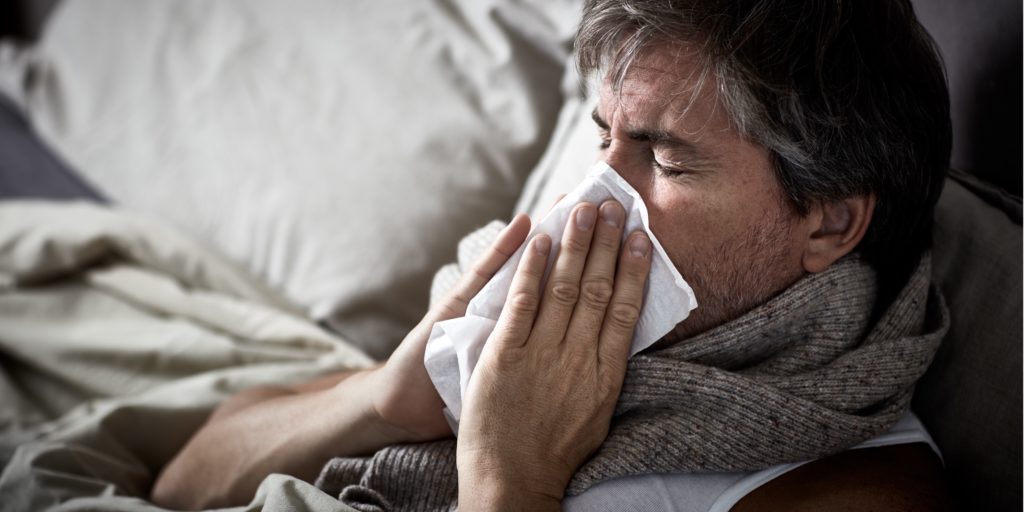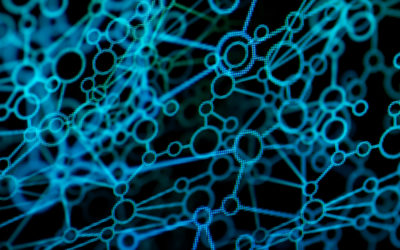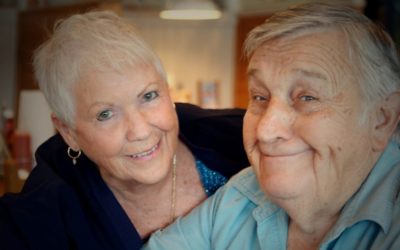Quick Hits
Daily brief research updates from the cognitive sciences

We all know that feeling when you’ve fallen sick, and you just want to curl up in your bed sheets and sleep the day away. You have little desire to move, and also probably aren’t hungry either.
You may not know, but can probably work it out, that this is actually good for you – it helps recovery. For example, in animals that are forced to eat when sick, mortality increases. So obviously the body is doing something that benefits us – even if it feels rubbish at the time.
But how this behaviour is controlled was a mystery: there could be multiple factors influencing this and multiple communication channels between body and brain. However, a group of researchers at Rockefeller University have now pinpointed a set of neurons that control this and the surprise is that it is only a small group of neurons that seem to influence this and not a distributed network. One small cluster that activates your sick behaviour.
This is in a region called the dorsal vagal complex, this sits at the base of the brain at the top of the spinal cord. And importantly it is before what is known as the blood-brain barrier. The blood-brain barrier is the brain’s protective wall that restricts what can get into the brain – the brain is a pretty important part of us so best to be safe. This means it receives input directly from the blood flowing through our bodies and can hence respond to this. The vagus nerve is the key parasympathetic pathway controlling multiple factors such as digestion, heart rate, and immune system function, and making this is an important crossroads for communication between the body and brain.
The team of researchers then activated this small population in neurons with mice who had been infected with dead bacteria to trigger an immune responses (but without getting sick). Activating or deactivating these cells increased sickly or reduced sickly behaviours.
So, there you have it, a small population of neurons slows you down when you’re sick – but, remember, it’s for your benefit.

Andy Habermacher
Andy is author of leading brains Review, Neuroleadership, and multiple other books. He has been intensively involved in writing and research into neuroleadership and is considered one of Europe’s leading experts. He is also a well-known public speaker, speaking on the brain and human behaviour.
Andy is also a masters athlete (middle distance running) and competes regularly at international competitions (and holds a few national records in his age category).
References
Anoj Ilanges, Rani Shiao, Jordan Shaked, Ji-Dung Luo, Xiaofei Yu, Jeffrey M. Friedman.
Brainstem ADCYAP1+ neurons control multiple aspects of sickness behaviour.
Nature, 2022; 609 (7928): 761
DOI: 10.1038/s41586-022-05161-7
More Quick Hits
Why Children Learn More Quickly Than Adults
It might be obvious that kids learn quicker than adults – but this shows for the first time why.
Right, so artificial networks also need sleep!
We need sleep but we are biological entities – that artificial networks improve performance with sleep is pretty fascinating, and insightful.
Making Voting More Effective for Better Decisions
Most of the most important decisions made in business and society are the result of votes – but not all voting methods are equally effective…
We’re Bad at Remembering How Happy We Were
The past ain’t always better – according to this latest research at least…
100 Years of Research Reveal the Most Effective Methods for Learning
New technologies, new research? No, the old methods are the best, and it’s surprisingly simple.
Why Too Much Talent May Harm Performance
This may sound like a strange thing to say – but talent and team coordination are different things…






